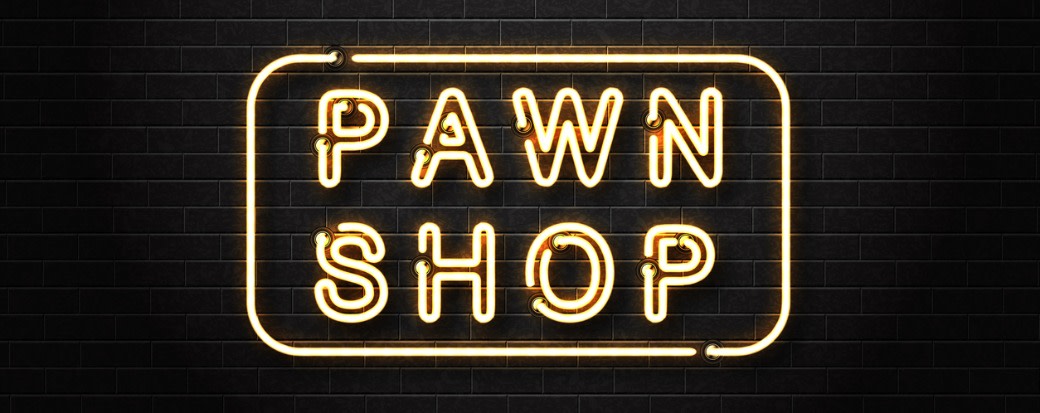Understanding Pawn Shop Loans

Pawn shop loans can be a way to get a small amount of cash quickly, but they can be risky. With a pawn shop loan, you put up a valuable item, such as jewelry or electronic equipment, in exchange for cash. However, there are typically steep interest rates and fees involved, and you risk losing your valuables if you can’t repay the loan.
If you’re considering a pawn shop loan, read on to learn how they work, the pros and cons, and other financing options that may be available to you.
What Are Pawn Shop Loans?
Pawn shop loans are secured loans that require collateral. You use a valuable item you own as collateral for the loan, and you’re able to borrow a percentage of the item’s resale value. As long as you repay the loan within the specified timeframe, your item is returned to you.
Recommended: What Can Be Used as Collateral for a Personal Loan?
How Do Pawn Shop Loans Work?
To take out a pawn shop loan, you bring an item of value to a pawn shop. Some common items include jewelry, firearms, electronics, and camera equipment. You need to be 18 years old and provide proof that you own the item. The pawn shop appraises it, and based on the item’s value, decides on the size of your loan.
The pawn shop will give you cash plus a ticket that may include information about the loan, like the amount, interest rate, fees, and repayment terms. You will need to present the ticket to get your item back.
Once you take out a pawn shop loan, you typically have a few weeks to a few months to repay the loan. If you don’t pay it back, the pawn shop will sell your item to recoup the amount.
How Pawn Shop Loans Are Typically Used
Pawn shop loans are a way to get a personal loan for a small amount of money without needing to fill out an application or undergo a credit check. Pawn shop loans don’t have credit score requirements and don’t report to the credit bureaus. So if you can’t pay back the loan, it won’t affect your credit score (though you will lose your item).
How Much Can a Pawn Shop Loan You?
The amount of a pawn shop loan is a percentage of the value of the item you use for collateral. The average amount of a pawn shop loan is $150, according to the National Pawnbrokers Association. As you can see, pawn shop loans tend to be small, so if you need a larger loan, you may want to explore other options.
Are Pawn Shop Loans Safe to Use?
Each state has rules and regulations about pawn shop loans, but predatory activity can still happen. Legal action has been taken against pawn shops in some cases. In general, if you can qualify for a more traditional loan, you may be better off. But if you need a small amount of cash quickly, a pawn shop loan may be an option to consider. Just be sure to research the pawn shop to make sure it is reputable and trustworthy. And be prepared to pay high interest rates and possibly fees as well.
Pros and Cons of a Pawn Shop Loan
Before taking out a pawn shop loan, weigh the pros and cons.
Pros | Cons |
Pawn shop loans can be easier to get than other types of loans. | You could lose your valuable item if you can’t repay the loan. |
Pawn shop loans typically provide you cash quickly. | The interest rates are often high. |
If you don’t repay the loan, it won’t negatively affect your credit score. | Some pawn shops charge additional fees for things like insurance or storage. |
No credit check is needed. | Most pawn shop loans are for small amounts. |
Other Types of Personal Loans
There are several other types of personal loans you may want to pursue instead of a pawn shop loan. These include:
A personal loan from a bank, online lender, or credit union. Many personal loans are unsecured personal loans, which means you don’t have to put up an item for collateral. Generally, the higher your credit score, the lower the interest rate you may get.
Another option is a payday loan. These are small, short-term loans that need to be repaid by your next payday. Payday loans function as a type of cash advance and usually come with high fees.
If you belong to a credit union, you may want to consider a payday alternative loan. This is a small, short-term loan that’s offered by federal credit unions. Unlike payday loans, payday alternative loans have a maximum interest rate of 28% and a maximum application fee of $20. They also have a wider range of repayment terms to choose from.
You could also opt for a family loan. With this type of loan, you borrow money from a family member or friend. Just be sure to put all the details of the loan in writing to avoid any potential conflict.
Recommended: Average Personal Loan Interest Rate
The Takeaway
A pawn shop loan might come in handy if you need a small amount of cash quickly. However, pawn shop loans can be risky — if you don’t repay your loan, you could lose your valuable item. These loans also typically come with high interest and fees. Consider all the pros and cons carefully.
A personal loan is another available lending option that may give you a bigger amount of money and a longer term to repay it. If you’re exploring personal loans, Lantern by SoFi can help guide you through the process. By filling out one simple form, you can see options from multiple lenders all at once.